Richmond Fontaine - Thirteen Cities
by John Clarkson
published: 24 / 2 / 2007
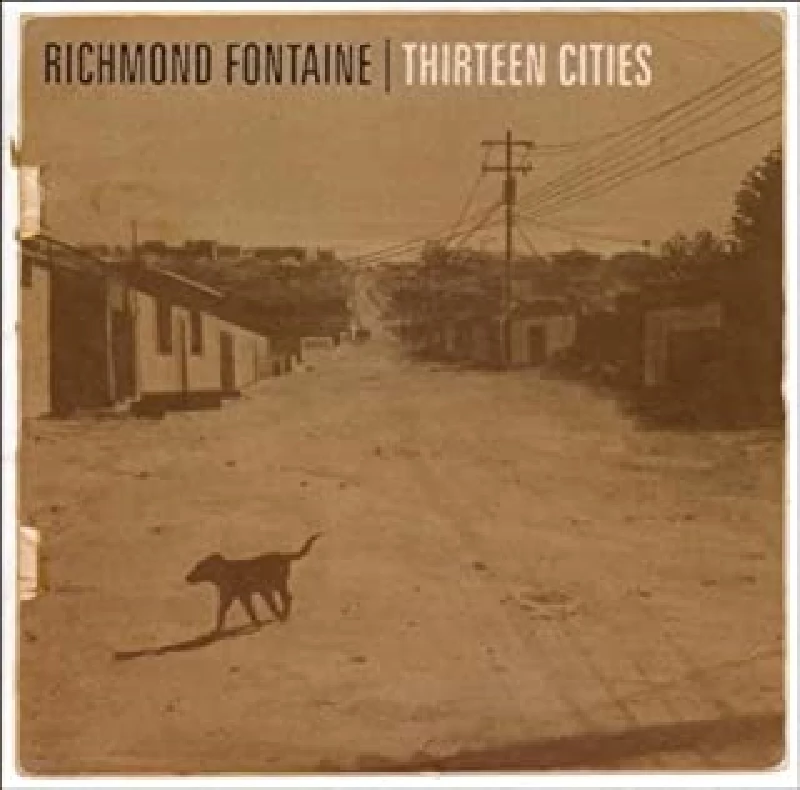
Label:
Decor Records
Format: CD
intro
Enthrallingly musically diverse and lyrically compassionate seventh album from Portland, Oregon-based alt. rockers, Richmond Fontaine
There is always a danger when a group has a singer-songwriter of strong talents that he or she may end up eclipsing the rest of the band. Willy Vlautin has such gifts. His rough worn vocals expose both a self-vulnerability and a sense of compassion for others, and he has an agility with words in which, often using just a few stanzas or sentences, he can capture a complete character or whole situation. Owing a debt on one side to such songwriters as Paul Westerberg, Bruce Springsteen and Dave Alvin, and on the other to authors such as Charles Bukowski , John Fante and John Steinbeck, his song writing comes from a school of bleak realism and generally has a narrative approach. It is perhaps not surprising that in recent times Vlautin has turned his hand to literature, publishing to much acclaim last year his debut novel ‘The Motel Life’, which told of two brothers who go on the run after becoming involved in a fatal hit and run accident. The other members of Richmond Fontaine, the alt. rock band in which Vlautin sings and plays guitar, are, however, every bit his equal. The group, which also currently consists of Dave Harding (bass), Dan Eccles (guitar), Sean Oldham (drums and percussion) and Paul Brainard (pedal steel guitar), formed in 1994 shortly after Vlautin, a house painter by trade, moved from his home town of Reno, Nevada to Portland, Oregon and met Harding at a race track. The band has in the thirteen years since then recorded seven albums. ‘Thirteen Cities’, the just released latest of these, was recorded in Tucson, Arizona with producer JD Foster, who also worked on the band’s last two albums, ‘Post to Wire’ (2004) and ‘The Fitzgerald’ (2005). It is Richmond Fontaine’s most ambitious and versatile offering to date. Three instrumentals, the eerily elegiac and brief ‘Intro/The Border’ ; the half hazy, meandering and the half spiraling, terse ‘El Tiradito’, and the summery blues of ‘The Ballad of Dan Fante’ (named in tribute to Dan Eccles, who plays lead guitar on it, for his seemingly unquenchable ability to down cans of fanta), each show off the band’s dexterity. About drifting through the West and taking its name from the thirteen cities (Mojave, Laramie, Spokane, Yuma, Tucson etc) visited by the characters within its thirteen proper tracks, there is, however, much else to admire elsewhere, both in Vlautin’s literary lyricism, and also in the group’s musical fluidity in other ways. The opening song , 'Moving Back Home #2', is a cascading Mariachi number with Paul Brainard and special guest Calexico's Jacob Valenzeua on pealing trumpets, and tells of a man, who forced to move back in with his parents after many years away from his home town, finds that the world has moved on, although he hasn't. "Store front names have changed/They've all got different names/But I've moved back and I'm still the same" Vlautin sings, capturing both the humiliation and shame of his protagonist. 'I Fell into Painting Houses in Phoenix, Arizona' in contrast is a rustic and sparse acoustic country number with a wailing Dylanesque harmonica It is about a drifter who quits in disgust a job that he has picked up as a painter, after his boss fails to pay an illegal immigrant for 5 days work, only to realise later that similar things are happening every day all over town ("I ain't shit but I ain't that way/Got a job at Turf Paradise and I moved in with a girl who worked on the backside/At night I'd always read the news/The Metro section of the Scottsdale Tribune/A family left in the trunk of a car/or a family abandoned in the Desert alone"). The hazy ambience of 'The Kid from Belmont' again has Valenzeua on trumpet and is told from a perspective of an older man trying to stop a boy that he has found trying to thumb a ride from running away ("You are just a mixed up kid and I know/Cause I've been there too/But I'll help you out of this"). About a kid who falls in with a group of racist skinheads, and, after getting involved in a stabbing, is forced on the run, 'The Disappearance on Ray Norton' features another guest appearance from a member of Calexico, this time Joey Burns on upright bass and percussion, and is an abstract and freeform folk piece told entirely in spoken monologue. Only the last two tracks, ‘Four Walls’ and ‘Lost in the World’, offer any real hope and the possibility of redemption. On the former track, a tender love song, Vlautin dreams of being locked up in a room with his girlfriend and favourite things, and away from the horrors of the world (“Four walls just lock us in/Don’t worry if we can’t get out/’Cause nothing get in”). Harding and Eccles push shove the volume of their chiming electric guitars up so that its initially gentle tune swells into a surging, exuberant rocker. With crescendoing backing vocal harmonics from Oldham, it really does seem as if Vlautin and his lover have escaped from reality, however temporarily. The last song, ‘Lost in This World’, is in contrast again a stark piano ballad, bringing the album to a soft, but powerful close, and finds it protagonist, after possibly weeks away on a bender, calling home (“I fucked up again/I barely know where I am/I’m sorry I ain’t called you in days”). On the surface, this seems like much of the rest of the material of ‘Thirteen Cities’ very black. Yet, unlike most of the other drifters who inhabit the album and who are trapped in their own aimlessness, this final character of the record has found the courage to contact his relatives, and by asking for help from them, rather than remaining alone, to perhaps eventually find a more optimistic future ahead. If ‘Thirteen Cities’ has a flaw, it is that, despite the band having helpfully provided a map in the booklet that accompanies the CD of their locations, it is not always clear which of the cities Vlautin is singing about in each song. That perhaps, however, is the point. He has always sung about the guy at the other end of the bar, the man ahead of you in the queue in the store. There is a sense of universality to each track here. Despite its Western theme which is central to Vlautin’s own upbringing and location, ‘Thirteen Cities’ really is about everyman, and much of its power comes from the fact that its stories could really be situated anywhere. ‘Thirteen Cities’ is a totally captivating record. With its lyrics which take its listener from despair to tentative optimism, and its music which incorporates elements of blues, country, folk, ambience and rock, it is an absolutely enthralling experience. Richmond Fontaine are currently making some of the most exciting and evocative music around.
Track Listing:-
1 Intro / The Border2 Moving Back Home #2
3 $87 And A Guilty Consience That Gets Worse The Longer I Go
4 I Fell Into Painting Houses In Phoenix, Arizona
5 El Tiradito
6 A Ghost I Became
7 Westward Ho
8 St. Ides, Parked Cars, And Other People's Homes
9 The Kid From Belmont Street
10 Capsized
11 Ballad Of Dan Fanta
12 The Disappearance Of Ray Norton
13 Four Walls
14 Lost In This World
Band Links:-
http://richmondfontaine.com/https://www.facebook.com/Richmond-Fontaine-100281195567/
https://twitter.com/rffontaine
Label Links:-
http://decorrecords.com/https://www.facebook.com/Decor-records-135039223266792/
https://twitter.com/decorrecords
Have a Listen:-
interviews |
|
Interview (2016) |
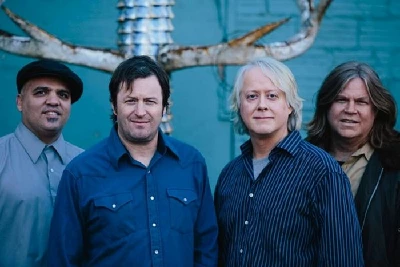
|
| John Clarkson speaks to Willy Vlautin, the vocalist and songwriter with acclaimed Portland, Oregon-based Americana band Richmond Fontaine about its tenth and farewell album, ‘You Can’t Go Back if There’s Nothing to Go Back to' |
| Interview (2009) |
| Interview (2007) |
| Interview (2005) |
| Interview (2004) |
| Interview (2002) |
live reviews |
|
Greystones, Sheffield, 25/4/2016 |
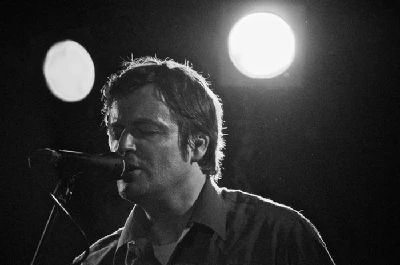
|
| Keith How enjoys Richmond Fontaine's literary Americana at a gig in Sheffield on their farewell tour |
| Luminaire, London, 22/5/2007 |
| Borderline, London, 28/9/2004 |
| Spitz, London, 25/5/2004 |
reviews |
|
We Used To Think The Freeway Sounded Like A River (2009) |
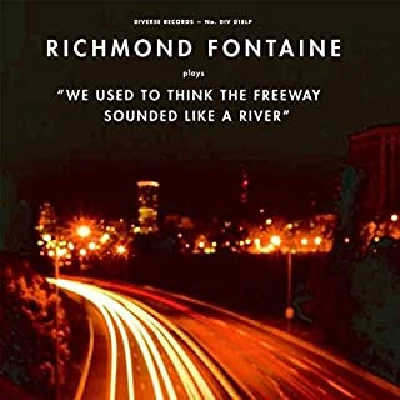
|
| Cinematic and atmospheric eighth studio album from Portland, Oregon-based group Richmond Fontaine, which, while often sadly bleak in its subject matter, is also emphatically life affirming |
| Post To Wire (2004) |
| Winnemucca (2002) |
most viewed articles
current edition
Carl Ewens - David Bowie 1964 to 1982 On Track: Every Album, Every SongBathers - Photoscapes 2
John McKay - Interview
Editorial - July 2025
Billie Eilish - O2 Arena, London, 10/7/2025
Simian Life - Interview
the black watch - Interview
Chris Wade - Interview
Cathode Ray - Interview
Sir Tim Rice - Interview
most viewed reviews
current edition
Sick Man of Europe - The Sick Man of EuropeAmy Macdonald - Is This What You've Been Waiting For?
Phew, Erika Kobayashi,, Dieter Moebius - Radium Girls
Alice Cooper - The Revenge of Alice Cooper
Blueboy - 2
Lucy Spraggan - Other Sides of the Moon
Cynthia Erivo - I Forgive You
Bush - I Beat Loneliness
Davey Woodward - Mumbo in the Jumbo
Philip Jeays - Victoria
related articles |
|
Delines: Interview (2014 |
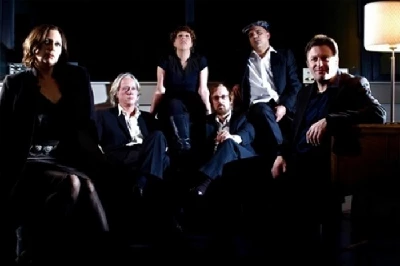
|
| Richmond Fontaine frontman and singer-songwriter Willy Vlautin talks to John Clarkson about his new band the Delines, their debut album 'Colfax', and 'The Free', his recently published fourth novel |
Pennyblackmusic Regular Contributors
Adrian Janes
Amanda J. Window
Andrew Twambley
Anthony Dhanendran
Benjamin Howarth
Cila Warncke
Daniel Cressey
Darren Aston
Dastardly
Dave Goodwin
Denzil Watson
Dominic B. Simpson
Eoghan Lyng
Fiona Hutchings
Harry Sherriff
Helen Tipping
Jamie Rowland
John Clarkson
Julie Cruickshank
Kimberly Bright
Lisa Torem
Maarten Schiethart